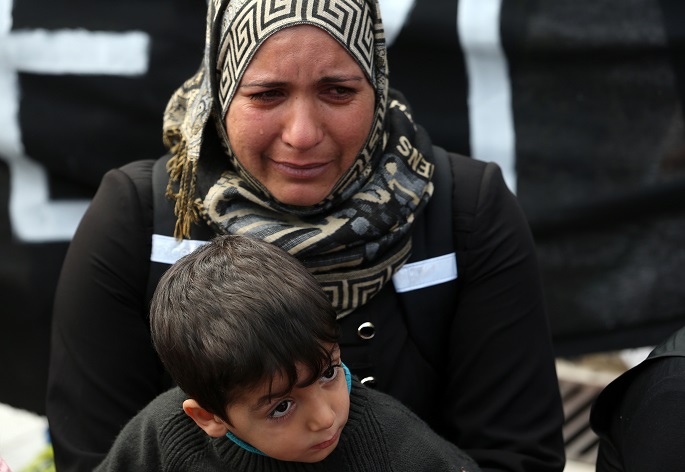Greek Migration Minister pleads for more aid to refugees
Published : 01 Nov 2017, 22:25
Updated : 02 Nov 2017, 02:19
Greek Migration Minister Yannis Mouzalas outlined on Wednesday the government's plan to improve the living conditions of thousands of refugees and migrants stranded in Greece ahead of winter, pleading to Europe and Turkey for more efforts to keep alive the 2016 deal aimed to curb flows into Europe and share the burden.
During a press briefing in Athens the Greek official said that Greece intends to create among other measures more reception centers on the Aegean Sea islands and the mainland to decongest the existing camps, as well as house people on ships if deemed necessary.
Local authorities objected to the creation of more hotspots on the islands last year calling instead for the transfer of more people to the mainland.
However, under the 2016 Europe-Turkey agreement refugees and migrants reaching the islands from cannot travel to the mainland until their asylum bids are examined.
The Greek Minister voiced concern during the briefing over the spike in the flows from Turkey since August.
Following the implementation of the Turkey- EU deal the number of daily arrivals had dropped by 97 percent compared to the 2015 levels, he noted.
However in September this year on average 214 people per day reached Greece up from 56 on average per day in March 2017.
"We are concerned with the increase. In our view the EU-Turkey agreement is still in effect from Turkey's side. We have increased our diplomatic contacts and pressure so that both parties, Europe and Turkey, will meet their commitments," Mouzalas said.
The Greek official called on other European countries to accept more people in need, such as unaccompanied minors.
"Europe is hypocritical regarding the unaccompanied minors issue. They do not accept their relocation. Our view is -and this is the also the view of the European Commissioner of Human Rights for a long time- that the age rather ethnicity is the priority. When Britain, Germany, France or other countries refuse to accept minors because they are not Syrians but Afghans or Pakistanis, this is a violation," he said.
Currently there are 2,900 unaccompanied minors among the more than 60,000 refugees and migrants stranded in Greece after the closure of borders along the Balkan route to central Europe in the winter of 2016.
More than one million people had reached Greece and continued the journey to central and northern Europe from early 2015 until then.
Shortly before Wednesday's press conference, one dozen refugees launched a hunger strike opposite the Greek parliament building on Syntagma square protesting delays in family reunifications.
Hayyan from Syria told Xinhua that they represent about 4,000 refugees awaiting transfer to Germany - most of which are families who are waiting already for more than 18 months in Greece.
His children are in Germany for two years.
"Think if for two and half years you do not see your daughter, what will you do? What will you feel? And the kids, if they do not see their parents what will they feel?" he was asking as protesters chanted slogans such as "Reunite us with our families now!"
"We do not know from which side is the problem. We just want to know where we are. How long to wait? When will we travel? Give me data, give me an appointment. Tell me you will travel this day," he said.


